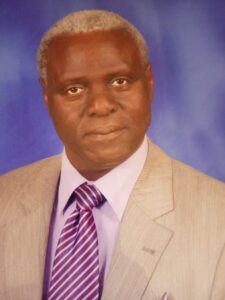“For what is our hope, our joy, or the crown in which we will glory in the presence of our Lord Jesus when he comes? Is it not you? Indeed, you are our glory and joy”. 1Thessalonians 2:19-20
In this passage of Scripture, the apostle Paul gives the reason for his desire to see the brethren in Thessalonica. He first calls them his hope; that among others they should be saved in the day of Christ. Secondly, he calls them his joy. He at present rejoiced in their ready and sincere receiving of the gospel preached by him. Thirdly, he calls them his crown of rejoicing, which signifies the triumph and height of joy. In the light of this, he mentions the presence and coming of Jesus Christ, he looks to the crown that he should receive on that day, which he speaks of, in 1 Corinthians 9:25. These Thessalonians, among others, would help to make up this crown of rejoicing to the apostle. Therefore, in these words, we may observe an eminent gradation, as also that the crown of ministers will arise not only from Christ but from their people also.
He states: “For what is our hope, or joy, or crown of rejoicing? Paul assured the Thessalonians that he could never forget them because they were his glory and his joy. His inability to visit should never be taken as a lack of love towards the Thessalonians.
Perhaps Paul would say that he did not need a crown in heaven because these precious ones were his crown of victory. We should know that those whom we bring to Jesus and disciple are a crown of victory for us.
Every man who preaches the Gospel should carefully read this chapter of Paul’s first epistle to the Thessalonians and therefore examine himself by it. Most preachers, on reading it conscientiously, will either give up their place to others, or purpose to do the work of the Lord more fervently for the future.
Verse 19 says: “For what is our hope, our joy, or the crown in which we will glory in the presence of our Lord Jesus when he comes? Is it not you?” We should note that Paul asks a rhetorical question in this verse and he answers it in the latter part of this verse and the next.
We see that Paul now gives his reason for his eagerness to see them.
He asks: “what is our hope, or joy, or crown of rejoicing?” He puts his work in perspective. He views himself standing at the Judgment Seat of Christ and receiving rewards from the Lord Jesus Christ for his labor in Thessalonica. Paul’s “hope” rests on living a certain kind of life in time, a life of evangelism. Paul has confidence that he will see Thessalonians in heaven. This is also his “joy”. We should know that there is no greater joy than seeing someone come to Christ. Paul’s joy was the thought of leading someone to Christ and then to know that he will spend eternity in heaven.
In his epistle to the Philippians, he states:
“Therefore, my beloved and longed-for brethren, my joy and crown, so stand fast in the Lord, beloved” (Philippians 4:1). Leading people to Christ will be Paul’s “crown of rejoicing” at the Judgment Seat of Christ. His crown is his converts. The word “crown” is the victor’s crown, the crown of introducing someone to Christ. There is a victory in winning people to Christ, or rather, in allowing God to win people to Christ through us. We must be told that those who never introduce anyone to Christ will not receive this crown.
The Thessalonian converts’ presence at the coming of Christ was the hope, joy, and crown of Paul’s rejoicing of the gospel team in the presence of the Lord Jesus Christ at His coming? Paul answers his own question. His reward will be that the Thessalonians who received Christ as their personal Saviour will meet the Lord at the Rapture.
Winning people to Christ is an eternal investment. It makes life worthwhile. What a day of rejoicing that will be when we see in heaven people we have led to Christ and finally see Christ Himself! We should realize that the word “coming” is a term that conveys the idea of presence. One day we will be in the presence of the Lord Jesus Christ. In 1 Thessalonians, this word refers to the Rapture (1 Thessalonians 4:16-17) or the period from the Rapture to the Second Coming to establish His Millennial Kingdom. The principle here is that those we win to Christ are our hope, joy, and crown of glory.
The coming of Christ is a great motivation for believers. This motivation sustains us through many trials and tribulations. In our lives, we should keep eternal values in view of this. If we view life from a secular viewpoint, we will not get God’s perspective on the purpose of our lives. In times of trouble, we need to catch the divine viewpoint on things. In this way, we will not allow trouble to overcome us.
Faith is critical in being able to do this. The Scripture says: “Now faith is the substance of things hoped for, the evidence of things not seen” (Hebrews 11:1).
By keeping our eyes on eternal values, we live by faith. The apostle Paul had a great affection for the Christian believers in Thessalonica. They were a young Church, who were growing in grace, maturing in the faith and making steady progress in their Christian walk. And although there were a few dissenters who tried to undermine Paul’s authority and others who had regressed in their spiritual growth, their enthusiastic response to the gospel of Christ was a great joy and encouragement to the apostle Paul, and his fellow-labourers in Christ.
Paul’s epistles were designed to strengthen their faith, encourage them towards holy living, correct any false doctrine, remind them of his apostolic authority, and further instruct them in Church-age doctrines and principles of godly conduct. Sadly, Paul and his companions had to leave Thessalonica before the Church was fully established, because they were met with strong opposition from the Jewish community, and the apostle did not want the fledgling believers to be persecuted, because of him. There were certain teachings that needed to be more firmly established in Thessalonica at the time Paul had to leave. His l epistles needed to reaffirm certain doctrinal issues. We see him re-establishing his teaching about the return of the Lord Jesus for His Church-age saints, together with the circumstances surrounding the Rapture of the Church. Beloved, Paul has just indicated that he desperately wants to see the Thessalonian Christians again. This is because he did not leave voluntarily (1 Thessalonians 2:17), and he blames his inability to return to them on interference from Satan (1 Thessalonians 2:18). Looking forward to the return of Jesus, Paul asks the Thessalonian believers what he most anticipated and what would give him his greatest joy, what crown would he wear, and what would make him most proud? His answer is simple, but profound: it is those with whom he has shared the gospel of Jesus Christ. We note that verses 19 and 20 make this point in poignant detail.
The New Testament teaches that faithful believers will receive crowns when Jesus comes again. 1 Corinthians 9:25 mentions an imperishable wreath for those who run the Christian race successfully. 2 Timothy 4:8 invokes the crown of righteousness. James 1:12 speaks of the crown of life. 1 Peter 5:4 references an unfading crown of glory while Revelation 2:10 mentions the crown of life. In this passage, Paul identified the Thessalonian believers as his crown and also his hope and joy.
As his hope, Paul wanted to see them grow strong in Christ. As his joy, they filled him with rejoicing. He could recall what they were before trusting in Christ as their Saviour. They were pagans steeped in the worship of idols. He could see what they had become: Christians who displayed faith, hope, and love. These remembrances caused Paul to exceedingly rejoice.
Verse 20 says: “Indeed, you are our glory and joy”. Beloved, by the apostle saying: “For you are our glory and joy”?
The word “you” is emphatic in Greek. “You and especially you are our glory and joy”. In this sense, the word “glory” means estimation, repute. It is Paul’s honour to introduce his converts to the Lord Jesus Christ. When he sees the Lord, he will know that his team’s glory will be people in heaven because of their witness. This is a legitimate pride because it is based on what God did through them. About this, he stated to the Romans: “Therefore I have reason to glory in Christ Jesus in the things which pertain to God. For I will not dare to speak of any of those things which Christ has not accomplished through me, in word and deed, to make the Gentiles obedient, in mighty signs and wonders, by the power of the Spirit of God, so that from Jerusalem and round about to Illyricum I have fully preached the gospel of Christ. And so I have made it my aim to preach the gospel, not where Christ was named, lest I should build on another man’s foundation, but as it is written: “To whom He was not announced, they shall see; and those who have not heard shall understand’” (Romans 15:17-21). To the Corinthians, he stated:
“But by the grace of God I am what I am, and His grace toward me was not in vain; but I laboured more abundantly than they all, yet not I, but the grace of God which was with me” (1 Corinthians 15:10).
Beloved, the apostle Paul stakes his entire reputation in eternity on winning those without Christ. The principle here is that our reputation in eternity will be based, in part, on winning people to Christ.
God values winning people to Christ. As the Scripture says: “How then shall they call on Him in whom they have not believed? And how shall they believe in Him of whom they have not heard? And how shall they hear without a preacher? And how shall they preach unless they are sent? As it is written:
“How beautiful are the feet of those who preach the gospel of peace, who bring glad tidings of good things! “But they have not all obeyed the gospel. For Isaiah says, ‘Lord, who has believed our report?’ So then faith comes by hearing, and hearing by the word of God. But I say, have they not heard? Yes indeed:
‘Their sound has gone out to all the earth, And their words to the ends of the world’” (Acts 26:14-18).
Beloved, do you have a part in the building of Christ’s Kingdom? Will people point to you that you had a part in bringing them into the Kingdom? Evidently, we see that the apostle Paul had a great affection for the Christians in Thessalonica. They were a young Church, who were growing in grace, maturing in the faith and making steady progress in their Christian walk. And although there were a few dissenters who tried to undermine Paul’s authority and others who had regressed in their spiritual growth, their enthusiastic response to the gospel of Christ was a great joy and encouragement to the apostle Paul, and his fellow-labourers in Christ.
Paul’s epistles were designed to strengthen their faith, encourage them towards holy living, correct any false doctrine, remind them of his apostolic authority, and further instruct them in Church-age doctrines and principles of godly conduct. Sadly, Paul and his companions had to leave Thessalonica before the Church was fully established, because they were met with strong opposition from the Jewish community, and the apostle did not want the fledgling believers to be persecuted, because of him.
There were certain teachings that needed to be more firmly established in Thessalonica when Paul had to leave. His two epistles to the Thessalonian believers show that he needed to reaffirm certain doctrinal issues. We see him re-establishing his teaching about the return of the Lord Jesus for His Church-age saints, together with the circumstances surrounding the Rapture of the Church. Therefore, in this verse Paul answers the question he posed in verse 19, asking what his ultimate reward was for his service to Christ. He replies that the Thessalonian believers, the people, themselves, were his joy and glory. This declaration would encourage the believers immensely and assure them that Paul’s absence from them had not dimmed his love for them.
What Paul writes in this verse assures us that eternal value resides in work done in the name of Christ, not in material possessions (1 John 2:15-17). Jesus warned against materialism. He said: “Do not lay up for yourselves treasures on earth, where moth and rust destroy and where thieves break in and steal” (Matthew 6:19). He instructed His followers to “lay up for yourselves treasures in heaven, where neither moth nor rust destroys and where thieves do not break in and steal. For where your treasure is, there your heart will be also” (Matthew 6:20-21). Noticeably, the Thessalonian believers were Paul’s treasure, and they were dear to his heart!

Senior Pastor,
Divine Grace Ecclesia,
King’eero, Lower Kabete.







